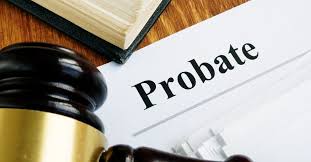
Who gets what? A quick guide to the distribution of assets in probate.
Skipped Over? Not So Fast — Grandchildren Often Inherit When Parents Can’t.
Many people believe that if someone’s child has already passed away, their family is “out” when it comes to inheriting.
But that’s not true — and it’s one of the biggest misunderstandings about how inheritance works when someone dies without a will.
At The Probate Law Center, we help families untangle what happens when there’s no will — and explain how the law decides who gets what.
Here’s a simple guide to how intestate distribution really works.
What Is Intestate Distribution?
When someone dies without a will, they are said to die intestate. That just means the state — not the person — decides who inherits their property. Each state has laws that create a “family tree” of who inherits first, second, and third.
In Missouri and Kansas, the general order is:
Spouse
Children
Parents
Siblings
Nieces and nephews
Extended relatives (like cousins)
But there’s an important rule many people miss — the family line does not end if a child of the deceased has already died.
What Happens If a Child of the Deceased Is Already Dead?
If one of the deceased person’s children has already passed away, that child’s own children (the deceased person’s grandchildren) usually step into their place.
This is called “per stirpes” distribution — a Latin term that basically means “by the branch.”
Example:
John dies without a will.
He had three children: Anna, Brian, and Carla.
Anna and Carla are alive, but Brian died five years ago.
Brian had two children, Sarah and James.
Here’s what happens:
Anna and Carla each inherit one-third of John’s estate.
Sarah and James split Brian’s one-third equally between them.
In other words:
Even though Brian died before John, his children still inherit his share.
Why the Law Works This Way
The idea is simple: The law tries to keep the inheritance “in the family” as much as possible. If someone’s child has died before them, the child’s children step up — they don’t get skipped over.
This way, a grandparent’s assets can still help grandchildren, even if their parent has already passed away.
What Happens If There Are No Living Descendants?
If someone dies without a spouse, children, grandchildren, or great-grandchildren, the law keeps going up and out on the family tree:
To parents
Then to siblings
Then to nieces and nephews
Then to more distant relatives
If absolutely no family can be found, the estate can eventually “escheat” — meaning it goes to the state.
📞 Need Help Figuring Out Intestate Inheritance?
Contact The Probate Law Center at www.ksmoprobate.com today.
We’re here to make the probate process easier — even when there’s no will.
Legal Disclaimer: This blog post is for informational purposes only and does not constitute legal advice or establish an attorney-client relationship. Please consult a qualified attorney about your specific situation.

